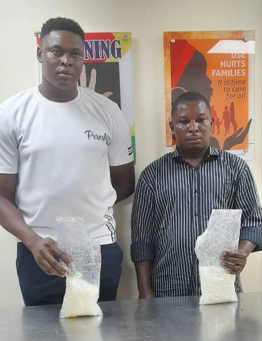Professor Olufemi Fasanmade is a Consultant Endocrinology, Head of the Endocrinology Unit, Lagos University Teaching Hospital. He is an Associate Professor of Medicine and the in – coming President of the Nigerian Society of Endocrinology and Metabolism. In this interview with our Correspondent, he spoke on the issue of Diabetes.
TNE: November 14th every year is World Diabetes Day. Why do we need to have a special day set aside for diabetes?
Most communicable and non-communicable diseases have either a day some even a month set aside to beam attention of the world to that particular condition, for instance diabetes. The number of people who are affected by diabetes are more than 450 million world wide and that is a large number. In a country like Nigeria, we have about 5 million people who have diabetes. It’s only appropriate that one day should be set aside and November 14th is the day.
TNE: This year’s theme is “Women and Diabetes: Our Right to a Healthy Future..” What informed the choice of theme?
What that theme is talking about is that the role women play in the control of diabetes is very important. For instance, if a person has diabetes, there are many aspects to the treatment. There is the education part, there is the diet part, the drugs and, of course, the doctors. Consider a family where a child or the husband has diabetes; the control of that person’s diabetes lies a lot within the care provided by the wife because she is the one in charge of preparing the food for the family, she’s the one to chart the life style, she’s the one to counsel other members of the family and ensure that they don’t get diabetes.
When a woman has diabetes, it affects the unborn children, diabetes leads to recurrent miscarriages, it leads to still births and reduces the rate of live births. If a woman who is diabetic gives birth and the child survives, the child is at a higher risk of having diabetes in later life than children whose parents do not have diabetes. It is very important to focus on women also because they play a major role in taking care of the family. There are some women who have high blood sugars in pregnancy – gestational diabetes – during pregnancy the blood sugars go up and at the end of the pregnancy they go down. Such women are at a higher risk of diabetes in later life. There are many areas where women play a very major role in diabetes treatment. Take for instance, children who have diabetes; their survival is dependent to a large extent on the mother because she is the one preparing the diet, she’s the one administering the medication, she’s the one that will take the child for appointments, she’s the one closest to the child. These are some of the things that one needs to bear in mind and that is why a lot of attention is placed on women.
TNE: Reportedly, diabetes is a leading cause of death in women. Would you corroborate that?
I don’t know where you read that but diabetes is the leading cause of death in almost all groups of people from middle age and above. It’s not the commonest cause of death but many people don’t realise that more people die from diabetes than tuberculosis, malaria and HIV combined together. If you count the number of people who die from diabetes, they are more than TB, HIV and malaria put together. That tells you how serious it is as a cause of death.
TNE: Can you give us some statistics to back up what you have just told us?
The number of people who die from diabetes on a yearly basis exceed 5 million. There is no condition that yields that number of deaths among all the other diseases.
TNE: Are you talking Nigeria?
No. I am talking worldwide. Nigeria doesn’t have adequate statistics in many areas. For us to have good statistics you have to have proper national statistics. We don’t even have a census. But we know from projections and estimates that there are about 5 million people with diabetes in Nigeria. Diabetes is the commonest cause of amputation of the lower extremities, it is also one of the commonest causes of kidney failure, stroke and heart failure. Diabetes is equally one of the commonest causes of blindness and nerve damage. So you can see that it is quite a serious problem.
TNE: What causes diabetes?
Nobody knows for sure the cause of diabetes but what we do know is the predisposing factors. It’s not like malaria where a person has malaria due to malaria parasite. There is no single agent that causes diabetes but a combination of factors and these factors include the ones that are genetic and the ones that are in the environment or acquired. If two parents have diabetes, their children have a higher chance of developing diabetes and if you have a twin with diabetes the other twin is also at a much higher risk of developing diabetes within a short period. That’ s the genetic aspect of diabetes. However, it is not necessary that if two parents have diabetes all the children will have diabetes. That tells you there are some other factors.
These factors include the type of diet – if you are eating a Western diet; junk food, diet with plenty of pastry, sugar, – sweets, chocolates, alcohol, smoking, highly refined and processed food, that’s what we mean by Western food. If you are indulging in that lot, you are at a high risk for diabetes also if you are not exercising, if you put on excessive weight, people who are obese are at a higher risk of diabetes. If for any reason a person has developed hypertension, he/ she has a very high risk for developing diabetes a few years after. All these are factors that predispose people to diabetes and in each individual they may play different roles.
READ ALSO: EXCLUSIVE: Diabetes kills more people than tuberculosis, malaria and HIV combined
TNE: You have said that diabetes is a leading cause of so many health problems – amputation, blindness, kidney failure etc. Why is that so?
Diabetes affects every blood vessel and in diabetes the blood sugar is high and anywhere blood is and the blood sugar is high, it damages those organs because they are programmed to operate at a certain level of blood sugar within the normal range, but in diabetes they are operating at sometimes twice or three times high. It’s like using the wrong fuel for your car. The car will not last long. Many things will go wrong and it will knock engine; the same thing with diabetes. The blood sugars are not controlled and if they remain high for a long period of time they will damage anywhere the blood enters. Blood goes to the eyes, blood goes to the brain, the kidney, the heart, to the legs that’s why I said it affects every organ.
TNE: Can children have diabetes?
Yes they can.
TNE: Apart from children whose parents have diabetes, what predisposes children to diabetes?
If you find diabetes in the very young ones; infants and toddlers with diabetes usually those types of diabetes are type 1 diabetes – diabetes which requires insulin for daily survival. There is no known exact cause but we believe that sometimes a viral infection can play a role. Also children who use artificial baby milk have a higher risk of developing type 1diabetes. This type doesn’t have much to do with genetics. It’s either a toxin, a virus or factors like exposure to cow milk or other artificial milk formula other than breast feeding of the child. These ones are at high risk.
Those who are a little bit older, who are not toddlers, the same factors that cause diabetes in adults can also cause diabetes in them. If a diabetic parent has a child who is obese and doesn’t exercise, that child is likely to have diabetes even before adulthood. These ones are type 2 diabetes.
TNE: Is Type 1 diabetes curable?
None of the diabetes are curable. We only manage them upon treatment and follow them up. They are on treatment for life.
TNE: How do you manage diabetes?
To manage diabetes you need a combination of appropriate diet, meaning a combination of high fiber diet, diet without much refined sugar. Our typical traditional African food is the type of diet we recommend – eba, amala and tuwo taken with plenty of vegetables. People need to move away from the fast foods, pastries and junk food. They should also be moderate with their portions size. That’s the dietary aspect.
The other aspect is the physical activity. With diabetes you need to ensure that you burn the calories and you can burn these calories by doing a lot of exercises – walking, swimming, tennis – 30 minutes to one hour daily. It helps to bring the sugar levels down. Other things that they should do is to refrain from smoking cigarettes, drinking alcohol and soft drinks. Then obviously there is medication. Depending on the type of diabetes, the medication can be tablets or they can be injection. Type 1 is treated only with injection while type 2 is treated with both injection and tablets.
TNE: You said earlier that diabetes is one of the leading causes of amputation of the lower extremities and we understand it is because their wounds don’t heal. Why is it so?
First of all, the person who has diabetes is prone to wounds, they have boils and abscesses all over the body. Because the nerves are damaged they often don’t feel. They can injure their toe without knowing. Most people if they wear a tight shoe will be looking for a way to remove it because of the discomfort. A person with diabetes doesn’t feel such discomfort so the leg can be strangulated. For some people, when they go on long distance journeys their legs get swollen, if it’s a diabetic person the foot will become damaged and sores will develop. The sore won’t heal but rather expands and when the sore is getting rotten either with maggots or decay, the only option would be to amputate the leg to save life.
TNE: Why doesn’t the wound heal?
The blood vessels to the area are affected. They are blocked. The nerves in the leg are also affected so the leg is unprotected and doesn’t have good blood supply. The reason it doesn’t have good blood supply is because the sugar has caused the vessels to be damaged and the longest vessels are the ones farthest away from the heart, which means the legs. The distance from the heart to the leg is usually more than one meter.
TNE: Coming to your hospital LUTH, how often do you ‘see’ patients with serious diabetes issues?
Every day of the week we have people being admitted with diabetes. At every point in time if you take a random day, any day in any year, we always have about 30 to 35 people on admission with diabetes.
TNE: How often do you record diabetes related deaths?
In the medical wards, that is the wards that are not for surgery, diabetes is usually within the top three or four causes of death here and in most other hospitals.











